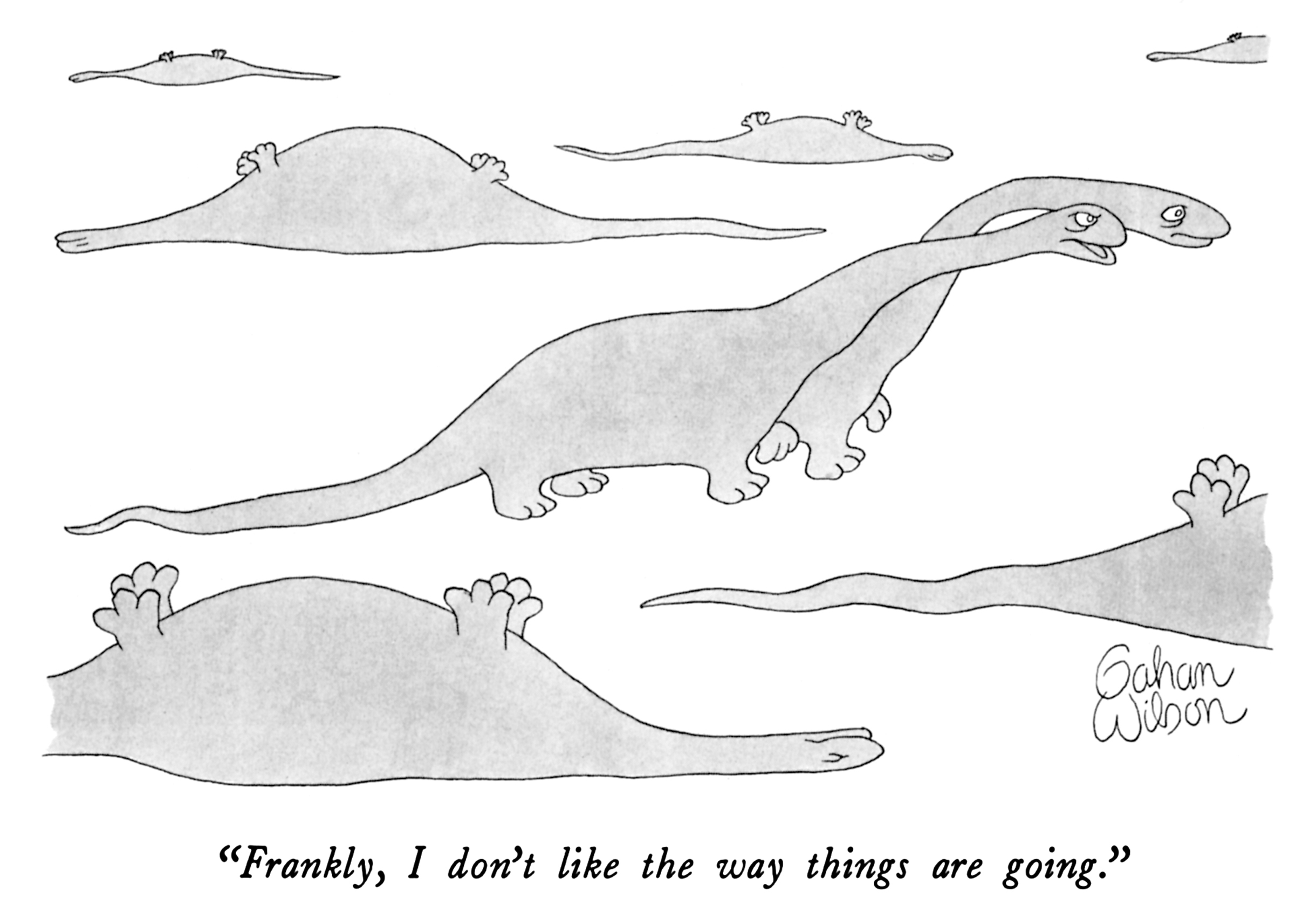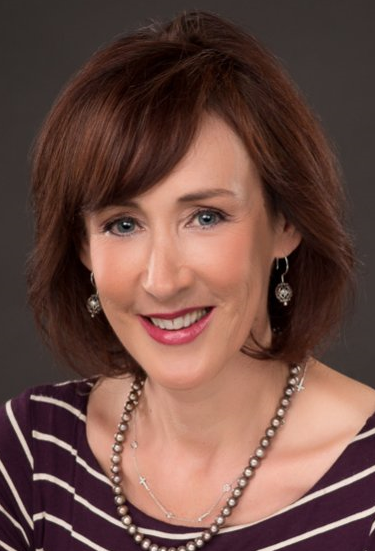
GAHAN WILSON/THE NEW YORKER COLLECTION/THE CARTOON BANK
A New Yorker cartoon says it all: Two dinosaurs are in deep discussion as they walk through a landscape of deceased comrades. "Frankly," confides one to the other, "I don't like the way things are going."
They could very well have been today's CFOs contemplating the nature and value of their role in tomorrow's organization. Advances in information technology are nipping at their heels. Will they survive and if so, in what form? Or will they, like the dinosaurs in the magazine cartoon, fall flat on their backs and fade into extinction?

FEI New York members and guests will get the chance to introspect on the subject at the
New York chapter's briefing and reception in midtown on Wed., Nov. 9. Featured speaker Dr. Liz Alexander, co-founder of Leading Thought, will expand on the case she made in a
Fast Company blog post that the C-suite should expect to succumb directly to automation. Her article's subheadline asserts: "Algorithms are already outperforming execs in key C-level tasks at a time when anti-hierarchical headwinds are blowing stronger." In the article she comments: "You only need to consider the criticism of leaders like Edward Lampert of Sears—himself a former banker—to wonder whether it might not be a smart idea for future CFOs to be algorithms."
The topic's timeliness is underscored by several articles that have examined the fate and future of the CFO. Bruce Nolop, former chief financial officer of Pitney Bowes Inc. and E*Trade Financial Corp., blogged, for example, in 2015 that " The role of chief financial officer has been in a constant state of flux–morphing from “financial engineer” in the 1990s, to “super controller” in the wake of Sarbanes-Oxley, to “strategic CFO” in recent years." He offered five predictions about the role in 2025.
More recently Christian Campagna, a senior managing director at Accenture, in a CFO.com post, discussed "the changing role of the CFO in a digital world." "To best cope with digital-driven disruption," noted the article's subhead, "companies are looking for finance leaders who can adapt the enterprise to a changing environment."
In her upcoming FEI New York briefing, Dr. Alexander will explore the plausible, possible, and preferable futures facing financial industry leaders in the age of smart machines and publicly fallible humans. Some of the questions she will consider: Why will career outcomes for the C-suite be worse than you imagine, but better than you think? What’s "inevitable" and what can still be controlled? How is changing ahead of change a wise strategy?" A panel of financial executives, assembled by the New York Chapter, will respond to her comments. FEI New York also plans an audience survey on the subject. Participants will get a copy of the results.
Is today's CFO obsolete or not? Come to the Nov. 9 briefing to find out.
Challenging is in this year at FEI's New York Chapter. "Our programming is emphasizing provocative speakers," says Chapter President Matthew Cooley. In October, the former CFO of Lehman Brothers, Erin Callan Montella, called into question devoting oneself to a career around the clock. She discussed where one draws the line between a successful career as an executive and having a happy life. For Callan Montella, work is not the be-all, end-all. Liz Alexander, whose controversial talk will focus on the CFO's obsolescence, has noted, "I like being a provocateur." Her talk will be followed later in the season by comments from the former CFO of HealthSouth, Aaron Beam. "The best speakers challenge and provide us with fresh new insights," says Chapter VP of Programs, Alexander Kotlyarevsky. "We are adding more of these programs as the year unfolds."